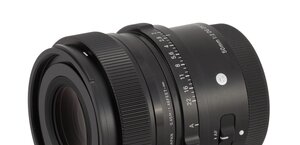Fujifilm Fujinon XC 16-50 mm f/3.5-5.6 OIS
4. Image resolution
Let’s remind here that the best fixe-focus lenses, tested that way, can reach results as high as 70-73 lpmm and the decency level is situated near 40-41 lpmm. How the tested lens compares here?

Please Support UsIf you enjoy our reviews and articles, and you want us to continue our work please, support our website by donating through PayPal. The funds are going to be used for paying our editorial team, renting servers, and equipping our testing studio; only that way we will be able to continue providing you interesting content for free. |
- - - - - - - - - - - - - - - - - - - - - - - - - - - - - - - - - - - - - - - - - - - - - - - -
The results are interesting. In case of zoom lenses the wide angle usually fares better than telephoto end but here we deal with a reversed situation – the best values you get at the maximum relative aperture of the maximum focal length, where the lens can reach near 64 lpmm.
Even at the weakest 16 mm focal length you shouldn’t complain a lot. At the maximum relative aperture the MTFs go to about 46 lpmm so you get a fully useful image.
Of course the Fujinon 16-50 mm doesn’t break any resolution records; still it would be foolish to expect an outstanding performance from a lens which is added to a camera of X-A1 or X-M1 class just for a small extra charge. There are no records, that’s true, but there are no slip-ups either.
Now let’s see how the lens performs on the edge of the frame.

The device doesn’t stop to surprise – now the order of the focal lengths is reversed. It is an interesting and sensible solution. At 16 mm, which is often used to capture architecture and landscapes, you care about even sharpness across the frame – and you get exactly that. The results are once again hardly record-breaking but they are on a sensibly high level. At the maximum focal length, while shooting portraits, you still get a sharp image of the person in the frame centre but the edges, less important, will be hidden among the blur.
As you see there are compromises but they were chosen carefully and sensibly. The lens doesn’t bowl us over with its resolution on the edge of the frame but it performs evenly and the values are on a decently high level. Even at the maximum relative aperture the Fujinon still reaches acceptable results of 43-44 lpmm everywhere.
At the end we present crops taken from our testing chart photos which were saved as JPEG files.
 |






